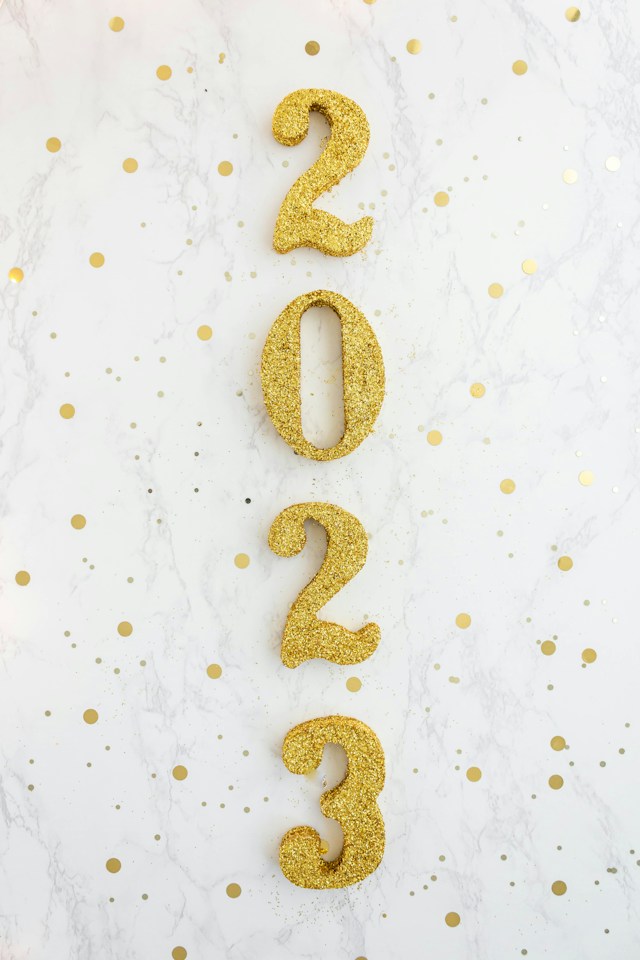New Year Journal Ideas: 10 Prompts to Inspire Your Writing
If you’re looking for a way to reflect on the past year and set intentions for the new one, journaling can be a great tool. Writing down your thoughts and feelings can help you process your experiences and gain clarity on what you want to achieve in the coming year.
However, if you’re not sure where to start, it can be helpful to have some prompts or ideas to get your creative juices flowing.
One approach is to reflect on the past year by writing about your accomplishments, challenges, and lessons learned.
What were you proud of? What was difficult? What did you learn from those experiences? This can help you gain perspective on what you’ve been through and what you want to focus on in the future.
Another approach is to set intentions for the new year by writing about your goals and aspirations. What do you want to achieve? What steps can you take to get there?
Writing down your goals can help you clarify what you want and stay focused on what’s important to you. With the right prompts and ideas, journaling can be a powerful tool for self-reflection and personal growth.

Reflecting on the Past Year
As the new year approaches, it’s important to take some time to reflect on the past year. This can help you gain perspective on what you’ve accomplished, what challenges you’ve overcome, and what lessons you’ve learned.
Highlighting Achievements
Take some time to think about your accomplishments over the past year. This could be anything from a big promotion at work to a personal goal you achieved, like running a marathon.
Start by writing down your achievements, then take a moment to celebrate them. You worked hard to get where you are, and it’s important to acknowledge your successes, regardless of how big or small they may seem.
Overcoming Challenges
Reflect on the challenges you faced over the past year. Maybe you lost a job, went through a breakup, or dealt with a health issue.
Think about how you overcame these challenges and what you learned from them. Did you develop new skills or coping mechanisms? Did you learn to lean on your support system more?
Write down what you learned from these challenges so you can use that knowledge in the future. For example, if you learned how to better manage stress during a difficult time, that’s a valuable skill that can benefit you in any aspect of your life.
Lessons Learned
Finally, think about the lessons you learned over the past year. This could be anything from a new skill you developed to a realization about yourself or the world around you.
Write down these lessons so you can refer back to them in the future. Reflecting on what you’ve learned can help you grow and develop as a person.
Reflecting on the past year can be a powerful exercise that helps you gain perspective on your life. By highlighting your achievements, reflecting on challenges, and thinking about lessons learned, you can set yourself up for success in the new year.

Setting Goals for the New Year
As the new year approaches, it’s time to start thinking about setting goals for the upcoming year, both personally and professionally.
Setting goals can help you stay motivated, focused, and on track to achieve what you want in life. Here are some ideas for setting goals in different areas of your life.
Personal Goals
Personal goals are all about improving yourself and your relationships with others. Here are some personal goals you might consider setting for the new year:
- Learn a new skill or hobby
- Read more books
- Spend more time with family and friends
- Practice self-care regularly
- Volunteer in your community
Career Goals
Career goals are all about advancing your professional life and achieving success in your chosen field. Here are some career goals you might consider setting for the new year:
- Attend a professional development conference or workshop
- Learn a new skill or software program
- Network with colleagues in your industry
- Take on a leadership role in your workplace
- Apply for a promotion or new job opportunity
Health Goals
Health goals are all about taking care of your physical and mental well-being. Here are some health goals you might consider setting for the new year:
- Exercise regularly
- Eat a balanced and nutritious diet
- Get enough sleep each night
- Practice stress-reducing techniques like meditation or yoga
- Schedule regular check-ups with your healthcare provider
Remember, setting goals is just the first step. It’s important to create a plan and take action to achieve your goals. Start small and be consistent, and you’ll be on your way to achieving your goals in no time!

Creating a Vision Board
A vision board is a visual representation of your goals and aspirations for the new year. It’s a great way to stay focused and motivated throughout the year. Here’s how to create a vision board:
Choosing Images
The first step in creating a vision board is to choose images that represent your goals. You can use magazines, newspapers, or even print images from the internet. Look for images that inspire you and represent what you want to achieve.
For example, if you want to travel more, you might choose images of exotic locations or landmarks you want to visit. Or, if one of your goals is to save money, you might choose images that represent financial stability or a dream purchase.
Arranging Images
Once you have your images, arrange them on a board in a way that makes sense to you. You can organize them by category, such as travel, career, or health.
Or you can arrange them in a way that tells a story. For example, you might start with an image of yourself, then add images that represent your goals and aspirations.
Writing Affirmations
In addition to images, you can also add affirmations to your vision board. Affirmations are positive statements that help you focus on your goals. Write affirmations that are specific and meaningful to you.
For example, if you want to improve your health, you might write “I am healthy and strong” or “I make healthy choices every day. These affirmations will help keep you motivated and focused on your goal.
Creating a vision board is a fun and creative way to set goals for the new year. You will have a constant reminder of what you want to achieve and stay motivated throughout the year.
Remember to keep your vision board in a place where you can see it every day, so it serves as a daily reminder of your aspirations.

New Year Resolutions
The start of a new year is the perfect time to set new goals and make resolutions. Resolutions are promises you make to yourself to improve your life in some way.
They can be big or small, but they should be achievable. Here are some ideas for choosing and planning to achieve your resolutions.
Choosing Resolutions
Choosing resolutions can be tricky. You want to choose something that will make a positive impact on your life, but you also want to choose something that is achievable. Here are some tips to help you choose your resolutions:
- Start by reflecting on the past year. What went well? What didn’t go so well? What do you want to improve?
- Make a list of things you want to achieve. Be specific and realistic.
- Prioritize your list. Choose the most important things first.
- Keep your resolutions simple. Don’t try to change everything at once.
Planning to Achieve Resolutions
Once you have chosen your resolutions, it’s time to make a plan to achieve them. Here are some tips to help you plan:
- Break your resolutions down into smaller, achievable goals.
- Create a timeline for achieving your goals. Be realistic and give yourself enough time.
- Write down your goals and keep them somewhere visible, like on your fridge or your desk.
- Track your progress. Celebrate your successes and learn from your failures.

Gratitude Log
A gratitude log is a powerful tool to help you focus on the good things in life and cultivate a positive mindset.
By taking a few minutes each day to reflect on what you are thankful for, you can increase your overall happiness and well-being.
Daily Gratitude
One way to use a gratitude log is to write down three things you are grateful for each day. These can be big or small things, such as a delicious cup of coffee, a kind gesture from a friend, or a beautiful sunset.
To make it easier to keep up with your daily gratitude practice, consider setting aside a specific time each day to write in your gratitude log.
This could be first thing in the morning, during your lunch break, or before you go to bed at night. By focusing on the positive aspects of your life, you can shift your perspective and increase your overall sense of gratitude.
Special Moments
Another way to use a gratitude log is to write down special moments or accomplishments that you are proud of.
This could include things like completing a challenging project at work, spending quality time with loved ones, or achieving a personal goal.
Whenever you need a reminder of your accomplishments or a pick-me-up on a tough day, you can look back on your gratitude log and be reminded of all the good things in your life.

Monthly Check-ins
Keeping track of your progress is important when working towards your goals. Monthly check-ins are a great way to stay accountable and make adjustments as needed. Here are some ideas for your monthly check-ins:
Reviewing Progress
Take some time to reflect on the past month and review your progress. Did you achieve the goals you set for yourself? If not, what obstacles did you face? Were there any unexpected successes or challenges?
Write down your reflections in a journal or use a progress tracker to keep track of your accomplishments. You can also use this time to set new goals for the upcoming month.
Adjusting Goals
Based on your progress review, adjust your goals for the upcoming month. If you achieved your goals, consider setting more challenging ones.
If you fell short, think about what changes you can make to ensure success in the future. Be specific about what you want to achieve and set realistic deadlines for yourself.
Use a table or list to organize your goals and track your progress. You can also use bold or italic formatting to highlight important information.
Remember, the key is to stay motivated and focused on your goals. By checking in with yourself regularly, you’ll be able to stay on track and achieve success in the new year.

Year-End Review
As the year comes to an end, it’s a great time to reflect on the past year and set goals for the upcoming year. A year-end review can help you evaluate your achievements and identify areas for improvement.
To start your year-end review, take some time to reflect on your accomplishments over the past year. Make a list of your achievements, both big and small. Celebrate your successes and take note of what worked well for you.
Next, identify areas where you could have done better. Be honest with yourself and don’t be afraid to acknowledge your shortcomings. Use these areas for improvement as opportunities to learn and grow.
Once you have evaluated your past year, it’s time to set goals for the upcoming year. Make a list of your goals, both personal and professional. Break each goal down into smaller, more manageable steps. This will help you stay motivated and focused throughout the year.

The Editor’s Note
Every last day of the year, I make myself sit down and review the goals I set for myself and my accomplishments over the past year. This has become a ritual for me, as it allows me to see how far I’ve come and where I want to go in the future.
During this time, I also reflect on any obstacles or challenges that may have come up throughout the year. It’s important to acknowledge these setbacks but not let them deter you from moving forward.
Look at them as learning opportunities and use them to fuel your determination for the upcoming year. This will help you stay resilient and focused when faced with obstacles in the future.
Then, to kick-start a new year, I’ll start jotting down several New Year journal ideas, depending on the goals I have set. One year, they can be about positive habits I want to develop, while the next can be about traveling and exploring new cultures.
Writing in a journal can help you stay accountable for your goals and track your progress. It can also serve as a form of self-expression and reflection, allowing you to gain deeper insights into your thoughts and emotions.
New Year journal ideas are something that can be personalized to your interests and needs. They can range from daily reflections to gratitude practices, creative writing prompts, or even goal setting exercises.
Now with 2024 has officially begun, what can you do to make this year the best one yet for yourself and for those around you? Let us know your New Year journal ideas in the comments below. Happy New Year! Happy journaling!


